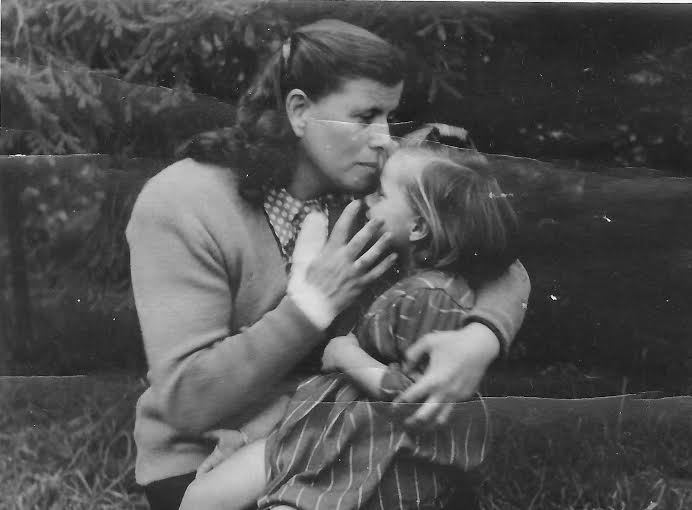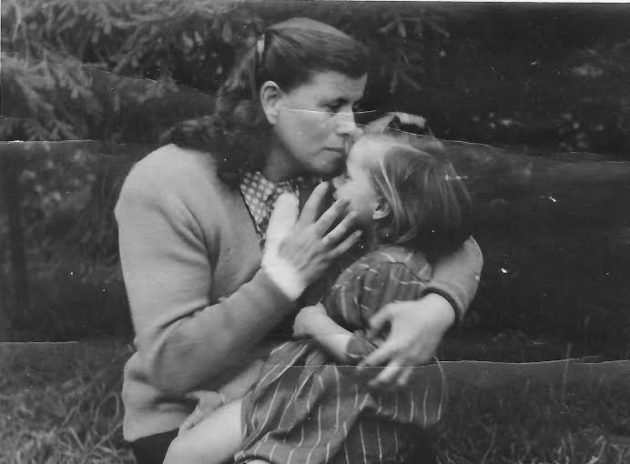
Mother’s Day Was Complicated for the Daughter of a Survivor

The author and her mother in Bergen Belsen Displaced Person’s Camp.
Mother’s Day was a complicated time in my childhood. My mother had survived World War II in Europe, and she had difficulty taking joy in life. For me, Mother’s Day was an opportunity to heal my mother’s pain and make her happy.
Making-do was a credo in our house and I learned young that frivolous spending relegated one to share a circle in hell with sinners who left food on their plates. So I strove to make my presentation special.
In Chicago, Mother’s Day coincides with the bloom of spring. We lived in an apartment, so I often appropriated gifts from other people’s property.
One year, I settled on lush purple lilacs hanging over a chain link fence and returned on Sunday morning to “shop.” A curler-crowned, housecoat-clad woman came out dragging trash and spotted me in flagrante delicto. She chased me down the block, yelling and waving the lid.
“I call principal. What school you go?” she scolded in the Polish-accented English of our immigrant neighborhood.
“St. Pat’s,” I chirped. The St. Pat’s kids treated us public school kids like gutter snipes and I felt proud to imagine a snooty St. Pat’s girl suffering for me.
At home I presented my mother with a pickle jar full of lilacs. My mother inhaled their perfume and rewarded me with a smile. Two days later, as the blossoms dropped onto the kitchen table, I heard her mumbling as she cleaned up.
Another bitter-sweet spring I admired my classmate’s pin. No sooner did I finish than she offered it to me for fifty cents so that she could buy her mother a gift. The pin was a flamboyant purple enameled flower, studded with rhinestones, only a couple of them missing. A tiny spring made the stamen “boing” when touched. It was irresistible, and I wanted it for my mother.



